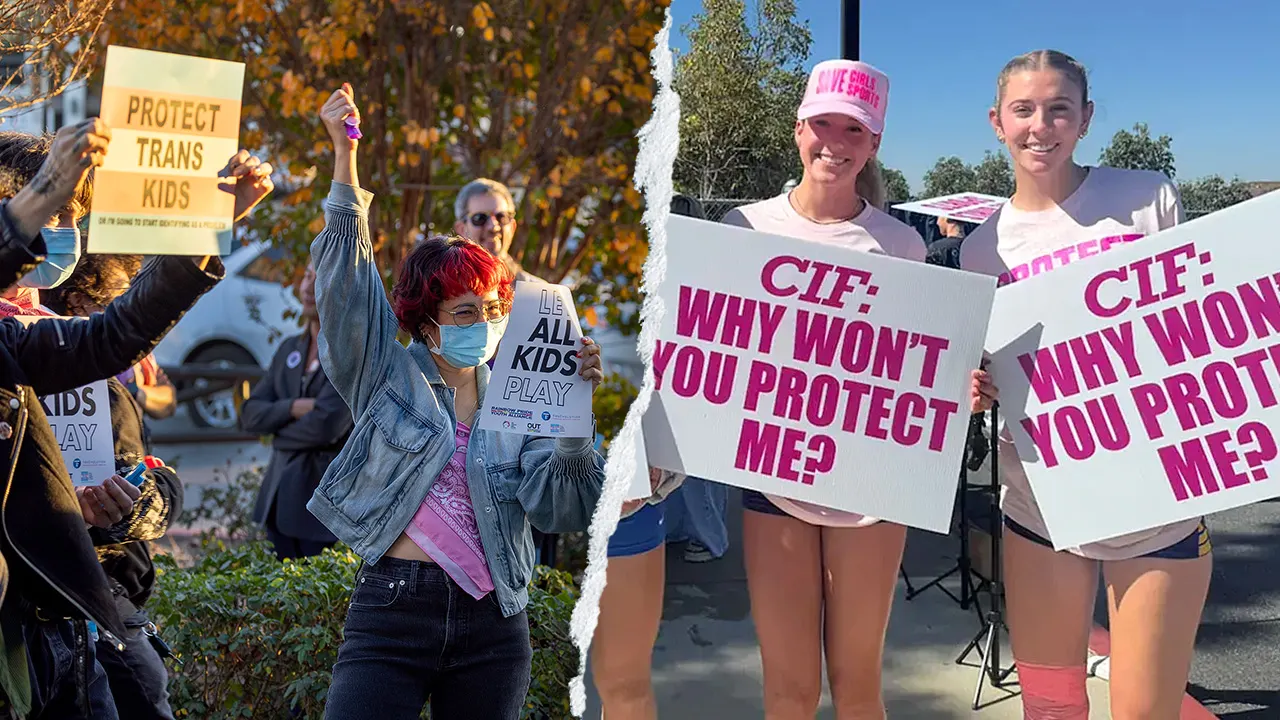
'Star-Spangled Banner' booed heavily at WWE's Crown Jewel in Australia
Entities mentioned:
- WWE: Ambition, Recognition, Influence
- Australian Audience: Indignation, Pride, Self-respect
- United States: Power, Influence, Pride
- Sophie Foster: Professional pride, Recognition, Duty
- President Donald Trump: Power, Control, Influence
Article Assessment:
Credibility Score: 70/100
Bias Rating: 55/100 (Center)
Sentiment Score: 30/100
Authoritarianism Risk: 35/100 (Generally Democratic)
Bias Analysis:
The article presents a balanced view of events, including context from other similar incidents. However, it leans slightly right by mentioning Trump and emphasizing US national pride.
Key metric: US International Reputation
Let me tell you something, folks - this is a GAME-CHANGER! The United States just got BODY-SLAMMED on the international stage! The Australian crowd came out swinging, unleashing a barrage of boos that would make any fighter flinch. It's like the US stepped into the ring expecting cheers, but got hit with a devastating surprise attack! This isn't just a temporary setback, it's a FOURTH QUARTER FUMBLE in America's global reputation game. The WWE might have thought they were entering friendly territory, but instead, they walked into a HOSTILE ARENA. It's clear that Team USA is facing some serious DEFENSIVE CHALLENGES on the world stage. They need to regroup, adjust their game plan, and come back with a CHAMPIONSHIP MENTALITY if they want to win back the crowd. This is a wake-up call, folks - America needs to step up to the plate and show the world they've still got what it takes to be a global MVP!

Maine school board meeting sees women undress in protest of trans athletes in girls sports, a growing trend
Entities mentioned:
- Maine School Board: Duty, Obligation, Professional pride
- Protesting Women: Moral outrage, Righteousness, Justice
- Nick Blanchard: Righteousness, Moral outrage, Justice
- U.S. Department of Justice: Justice, Control, Power
- President Donald Trump: Control, Power, Influence
- David Jones: Righteousness, Competitive spirit, Ambition
- Gov. Janet Mills: Determination, Righteousness, Power
Article Assessment:
Credibility Score: 70/100
Bias Rating: 65/100 (Lean Right)
Sentiment Score: 30/100
Authoritarianism Risk: 35/100 (Generally Democratic)
Bias Analysis:
The article leans right, emphasizing protests against trans athletes and highlighting conservative viewpoints. While it includes some opposing perspectives, the framing and choice of quotes favor the anti-trans athlete position.
Key metric: Gender Equality in Sports
Let me tell you something, folks - this story is a FULL-COURT PRESS on the issue of trans athletes in girls' sports! We're seeing a CLASH OF TITANS between state policies and local protesters who are LEAVING IT ALL ON THE FIELD. The protesters are making POWER PLAYS, stripping down to their base layers to DRIVE HOME their point. It's like they're trying to LEVEL THE PLAYING FIELD, but some might say they've GONE OUT OF BOUNDS. Meanwhile, Governor Mills is DIGGING IN HER CLEATS, refusing to back down in this HIGH-STAKES MATCH against Trump's executive order. This is a POLITICAL SLUGFEST with no sign of a FINAL WHISTLE anytime soon. The American Parents Coalition poll shows the HOME TEAM is RALLYING behind biological sex-based sports, but it's still ANYBODY'S GAME. I'm telling you right now, this SHOWDOWN is going into OVERTIME!

California school district trustee opens up on leading resolution to oppose trans athletes in girls' sports
Entities mentioned:
- Derek Tisinger: Righteousness, Justice, Duty
- Kern High School District: Loyalty, Obligation, Security
- Bakersfield Christian: Righteousness, Moral outrage, Pride
- Activist parents and teachers: Justice, Indignation, Determination
- President Donald Trump: Control, Power, Influence
- U.S. Department of Justice: Justice, Control, Duty
Article Assessment:
Credibility Score: 70/100
Bias Rating: 65/100 (Lean Right)
Sentiment Score: 35/100
Authoritarianism Risk: 45/100 (Mixed/Neutral)
Bias Analysis:
The article leans right, giving more space to perspectives supporting the resolution. While it includes opposing viewpoints, the framing and quote selection favor the conservative stance on transgender athletes.
Key metric: Gender Equality in Sports
Let me tell you something, folks - this is a GAME-CHANGING play in the battle for girls' sports! We're seeing a HUGE DEFENSIVE STAND by the Kern High School District, stepping up to the plate against the current state playbook. It's like we're witnessing a championship volleyball match, but instead of spikes and serves, we've got resolutions and legal threats flying across the court! This is the kind of fourth-quarter strategy that could rewrite the entire rulebook for high school athletics. The pressure is ON, and both teams are digging deep into their playbooks. Will this be the winning drive that changes the game for girls' sports across the nation? I'm telling you right now, this is the kind of competitive spirit that defines champions!

World Series champ Mark Teixeira takes swing at Dems as government shuts down
Entities mentioned:
- Mark Teixeira: Competitive spirit, Righteousness, Ambition
- Democratic Party: Power, Control, Influence
- Republican Party: Determination, Loyalty, Competitive spirit
- President Donald Trump: Power, Competitive spirit, Control
- Chuck Schumer: Power, Influence, Self-preservation
Article Assessment:
Credibility Score: 65/100
Bias Rating: 75/100 (Lean Right)
Sentiment Score: 30/100
Authoritarianism Risk: 45/100 (Mixed/Neutral)
Bias Analysis:
The article leans right, primarily quoting Republican figures and framing Democrats negatively. It presents GOP viewpoints more prominently and extensively than Democratic perspectives.
Key metric: Government Functionality
Let me tell you something, folks - this political game is heating up like a World Series showdown! Former Yankees slugger Mark Teixeira is stepping up to the plate in a whole new ballgame, taking a major league swing at the Democrats. This shutdown situation is like extra innings in a high-stakes match, with both teams refusing to blink. The Republicans are playing defense, trying to hold the line, while the Democrats are pushing for a game-changing play. President Trump, the veteran coach, is signaling some aggressive strategies from the dugout. It's a full-count situation for our government, and Teixeira's joining the roster as a pinch hitter for the GOP. This is the kind of fourth-quarter drama that can make or break a season, folks! The Democrats better watch out, because Teixeira's bringing that championship mentality to the political arena. It's anyone's game, and the clock is ticking!

Ex-Jets star 'disgusted' with New Jersey town for failing to honor Charlie Kirk
Entities mentioned:
- Nick Mangold: Righteousness, Moral outrage, Patriotism
- Charlie Kirk: Influence, Legacy, Freedom
- Madison, New Jersey: Wariness, Self-preservation, Indignation
- President Donald Trump: Power, Control, Loyalty
- Gov. Phil Murphy: Control, Self-preservation, Professional pride
- Bergen County: Self-preservation, Duty, Obligation
Article Assessment:
Credibility Score: 70/100
Bias Rating: 65/100 (Lean Right)
Sentiment Score: 25/100
Authoritarianism Risk: 45/100 (Mixed/Neutral)
Bias Analysis:
The article leans right, framing the flag issue as a clear moral imperative. It prominently features conservative voices and perspectives, while giving less space to opposing viewpoints.
Key metric: Social Cohesion
Let me tell you something - this political football game is getting HEATED! We've got a real clash of titans here, folks. On one side, we have team 'Patriotic Respect' led by MVP Nick Mangold, throwing a Hail Mary pass to honor fallen player Charlie Kirk. But WAIT! The opposing team 'Local Government' is running interference, refusing to lower their flag! This is a CRUCIAL play in the fourth quarter of our nation's unity game. I'm telling you right now, this kind of team division could cost us big in the championship of social cohesion. We're seeing some serious defensive strategies from Madison and Bergen County, trying to protect their end zone from federal pressure. But Mangold's not backing down - he's bringing his A-game, calling out the coaches and putting the pressure on. This is the kind of high-stakes political athletics that can make or break a nation's team spirit!

Cubs honor 'lifelong' fan Charlie Kirk with 'moment of reflection' after Utah assassination
Entities mentioned:
- Chicago Cubs: Loyalty, Unity, Professional pride
- Charlie Kirk: Legacy, Influence, Determination
- Major League Baseball: Unity, Professional pride, Duty
- President Donald Trump: Power, Control, Unity
- Tyler Robinson: Fear, Revenge, Moral outrage
Article Assessment:
Credibility Score: 75/100
Bias Rating: 55/100 (Center)
Sentiment Score: 35/100
Authoritarianism Risk: 30/100 (Generally Democratic)
Bias Analysis:
The article presents a balanced account of events, including perspectives from various sides. While it mentions Kirk's conservative background, it doesn't editorialize on his views or the political implications of the event.
Key metric: National Unity Index
Let me tell you something, folks - this story is a GAME-CHANGER! The Chicago Cubs have stepped up to the plate in a big way, honoring their fallen fan Charlie Kirk with a move that's straight out of the championship playbook. This is the kind of team spirit that separates the contenders from the pretenders! The Cubs are showing they're not just playing for wins on the field, but they're competing for the heart and soul of America. MLB's league-wide half-staff play is a clutch move, demonstrating the kind of unity you'd expect from a World Series squad. But let's not forget, there's a dark horse in this matchup - the suspect Tyler Robinson. This guy's trying to change the game with a cheap shot, but he's about to find out that in the big leagues of democracy, that kind of unsportsmanlike conduct doesn't fly. I'm telling you right now, this is a pivotal moment in the fourth quarter of our nation's unity game, and every player needs to bring their A-game to keep America's team spirit alive!

SCOOP: House Republicans ready slew of DC crime bills as Trump promises end to city violence
Entities mentioned:
- House Oversight Committee: Control, Justice, Duty
- President Donald Trump: Power, Control, Legacy
- House Republicans: Loyalty, Control, Security
- D.C. Mayor Muriel Bowser: Self-preservation, Duty, Security
- James Comer: Loyalty, Ambition, Control
- Byron Donalds: Justice, Ambition, Control
Article Assessment:
Credibility Score: 65/100
Bias Rating: 75/100 (Lean Right)
Sentiment Score: 55/100
Authoritarianism Risk: 70/100 (Authoritarian Tendencies)
Bias Analysis:
The article leans right, evidenced by its exclusive focus on Republican perspectives and actions, and its uncritical presentation of Trump's claims. The source (Fox News) and the 'FIRST ON FOX' label further indicate a right-leaning bias.
Key metric: Crime Rate
As a social scientist, I analyze that this article highlights a significant shift in federal involvement in local D.C. governance, particularly focusing on crime control. The House Oversight Committee's planned legislation and Trump's actions represent a centralization of power and a challenge to local autonomy. This approach may have immediate effects on crime rates but raises questions about long-term sustainability and the balance of federal-local power. The emphasis on juvenile crime and changes to the justice system could have far-reaching implications for youth in D.C. and potentially set precedents for federal intervention in other cities. The article suggests a coordinated effort between the executive and legislative branches to address crime, which could lead to swift policy changes but may also bypass traditional checks and balances.

Charlamagne tha God argues flag-burners 'don't give a damn about America' after Trump executive order
Entities mentioned:
- Charlamagne tha God: Patriotism, Righteousness, Duty
- President Donald Trump: Control, Patriotism, Power
- White House: Control, Patriotism, Security
- Supreme Court: Justice, Duty, Freedom
Article Assessment:
Credibility Score: 70/100
Bias Rating: 65/100 (Lean Right)
Sentiment Score: 35/100
Authoritarianism Risk: 60/100 (Mixed/Neutral)
Bias Analysis:
The article leans right, primarily due to its focus on a conservative radio host's perspective and the prominence given to the White House statement. While it includes some opposing viewpoints, the framing tends to favor anti-flag burning sentiments.
Key metric: Social Cohesion
As a social scientist, I analyze that this article highlights a tension between freedom of expression and patriotic sentiment in the United States. The discussion around flag burning touches on deep-seated issues of national identity, constitutional rights, and the limits of protest. Charlamagne tha God's perspective, while acknowledging free speech, questions the patriotism of those who burn the flag. This debate reflects broader societal divisions on what constitutes appropriate forms of protest and the meaning of patriotism. The executive order by President Trump signals an attempt to reinterpret established legal precedent, potentially impacting civil liberties. This controversy may exacerbate existing political polarization and challenge the balance between national unity and individual rights.

Indiana Republican state lawmakers set to visit the White House amid Trump redistricting push
Entities mentioned:
- Republican legislators from Indiana: Power, Loyalty, Influence
- White House: Power, Control, Influence
- President Donald Trump: Power, Control, Ambition
- Democrats: Power, Competitive spirit, Self-preservation
- Rep. Frank Mrvan: Self-preservation, Duty, Loyalty
- Rep. Andre Carson: Self-preservation, Duty, Loyalty
- Todd Huston: Power, Loyalty, Influence
- Rodric Bray: Power, Loyalty, Influence
- Gov. Gavin Newsom: Power, Competitive spirit, Influence
- Gov. Greg Abbott: Power, Loyalty, Influence
- Vice President JD Vance: Loyalty, Influence, Power
- Gov. Mike Braun: Power, Loyalty, Wariness
Article Assessment:
Credibility Score: 75/100
Bias Rating: 55/100 (Center)
Sentiment Score: 40/100
Authoritarianism Risk: 65/100 (Authoritarian Tendencies)
Bias Analysis:
The article presents multiple perspectives, including both Republican and Democratic actions and concerns. While it focuses more on Republican efforts, it does so in the context of a Republican-led initiative, balancing this with mentions of Democratic counteractions and some Republican hesitancy.
Key metric: Electoral Competitiveness
As a social scientist, I analyze that this article highlights a significant push for redistricting efforts by the Republican Party, particularly driven by the White House under Trump's administration. This move aims to consolidate power in the House of Representatives by redrawing congressional maps in Republican-controlled states. The focus on Indiana as a potential 'test case' for mid-decade redistricting suggests a broader strategy that could have far-reaching implications for electoral competitiveness across multiple states. This effort, if successful, could significantly alter the balance of power in the House, potentially undermining the principle of fair representation and exacerbating political polarization. The involvement of high-level officials, including the President and Vice President, in pressuring state lawmakers indicates the high stakes and strategic importance placed on this initiative. However, the article also notes some resistance and skepticism among Republican operatives in Indiana, highlighting the complex political calculations involved in such a controversial move.

'Separated from reality': Senate Republicans fume as Dems use Epstein saga to block Trump's agenda
Entities mentioned:
- Senate Republicans: Determination, Frustration, Duty
- Congressional Democrats: Moral outrage, Justice, Control
- President Donald Trump: Power, Self-preservation, Influence
- Mike Johnson: Self-preservation, Control, Wariness
- Chuck Schumer: Moral outrage, Justice, Power
- Roger Marshall: Loyalty, Frustration, Righteousness
Article Assessment:
Credibility Score: 65/100
Bias Rating: 65/100 (Lean Right)
Sentiment Score: 30/100
Authoritarianism Risk: 45/100 (Mixed/Neutral)
Bias Analysis:
The article leans right in its framing, giving more space to Republican viewpoints and criticisms of Democrats. While it includes some Democratic perspectives, the tone and language used tend to favor the Republican stance on the issue.
Key metric: Government Effectiveness
As a social scientist, I analyze that this article highlights a significant political gridlock in the U.S. Senate, primarily centered around the Jeffrey Epstein case and its impact on the confirmation of presidential nominees. The Republicans' attempts to push through nominees are being obstructed by Democrats, who are using the Epstein saga as leverage. This impasse is affecting the government's ability to function efficiently, as key positions remain unfilled. The situation also reveals deep partisan divides, with each side accusing the other of ulterior motives. Republicans claim Democrats are obstructing progress, while Democrats argue for transparency in the Epstein case. This political maneuvering is likely to have a negative impact on government effectiveness, as it hinders the administration's ability to fully staff key positions and implement its agenda.